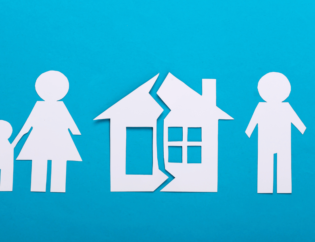
Fortunately, you do not need any money to seek a divorce, but you must follow the method established by your state to have the court expenses waived. When you need to leave a marriage but don’t have the money, this might be a big help. You can be saved from having to pay several hundred dollars if you are in a financial fix and looking to file for divorce. Generally, it is an expensive procedure since the court fee might add up when representing yourself. Here is a quick checklist of things that you might have to consider before you apply for divorce with no money:
- You and your spouse are on the same page concerning (property division, custody, and support).
- You’re satisfied that you have complete information about your family’s assets and debts, which are fairly simple.
- You’re comfortable with the arrangements for your children in terms of custody, support, and shared parenting time. In other words, you feel the settlement is reasonable and fair.
Apart from this please note that you have the time and temperament for this, as requesting for a waiver, documentation, and court appearances can be tedious or emotionally draining if you had a traumatic fallout.
Fee Waiver
Your local divorce or family courts will have printable forms to request a fee waiver. Look it up on their website and check if they have an online guide to help you through the process. Another way is going to the courthouse and collecting the forms from there and getting help in filling in the details. Please note that without fulfilling your state residency requirements you cannot file for the divorce. You also have to fill in the necessary information, including information on the marriage’s children, assets, debts, date of marriage, and grounds for divorce. You must also specify if you are seeking child support, alimony, or the split of marital assets.
Proof Of Financial Status
You must demonstrate to the court that you are destitute, or impoverished to have your divorce expenses waived. You’ll also need to provide documentation regarding your income (including Social Security, child support, disability, and payroll), assets (such as bank accounts or automobiles), and obligations (such as student loans) (credit card, loans, and utility bills). You might be inquired about tax returns, it is best to keep that documentation proof with you as well. The required documents will be listed in detail in the forms that you acquire. Providing financial disclosure is a mandatory step while filing for divorce.
Filing Of Fee Waiver
The next step to get divorce with no money is to get the forms notarized, you can get it done from a bank if you have one or the clerk can do it for you before filing.
Hearing and Verdict
After you file your documentation will be examined by court staff. A hearing may be called for interrogation. The court may waive the charges or allow you enough time to pay later if you are going to receive a portion of your ex’s property as part of the divorce settlement or verdict.
After the approval of the waiver, your case will move forward. The simplest method to continue is to submit a settlement or to appear in court with your partner and tell the judge what you’ve agreed to. Another alternative is to proceed with the divorce as an uncontested divorce, which means your ex will not be required to present in court.
Voluntary Legal Aid
Find a volunteering legal aid society in your area or a volunteer lawyers program through your local bar association, in case handling the entire process is overwhelming for you. Call your city or state bar organization for contact information, or search the internet for them. These organizations offer free (and sometimes low-cost) legal aid. If you are impoverished, they will represent you for free and will complete any fee waiver paperwork on your behalf.









